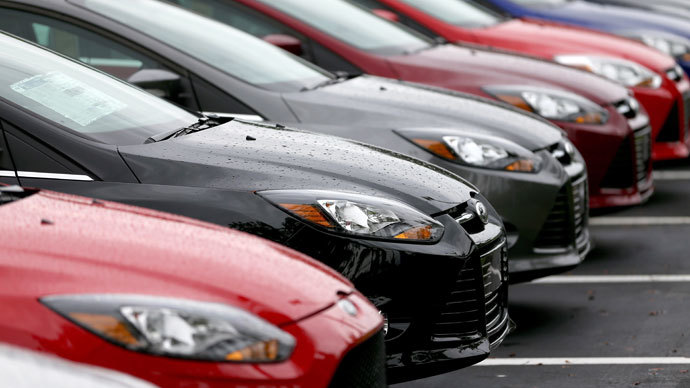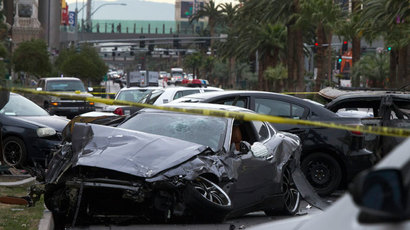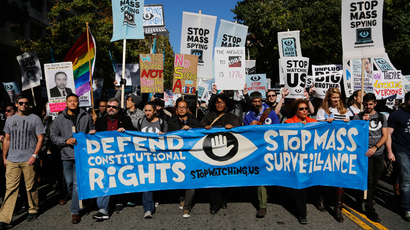Feds consider mandating new cars to broadcast speed, location

The National Highway Traffic Safety Administration is currently considering whether to require all new cars to include communication technology that constantly broadcasts a vehicle’s location, speed, and perhaps even the number of passengers inside.
This new technology, dubbed “vehicle-to-vehicle” (V2V) communications, would be used to alert drivers to possible hazards and improve the safety of cars, but there is also concern that the data transmitted could be used to violate an individual’s privacy.
The NHTSA sees V2V technology as the first of a series of steps that would eventually culminate in effective self-driving cars, which would operate through the cooperation of an individual vehicle’s internal electronics and an external communications and database system. The agency expects to decide whether to move forward with the rule-making process before the end of the year.
“We expect to issue decisions on light duty vehicles this year, followed by a decision on heavy-duty vehicles in 2014,” said NHTSA administrator David Strickland to the House Transportation and Infrastructure Committee, according to CNSNews.
By sharing and receiving various kinds of data from other cars, a vehicle would be able to deliver early warning signals to the driver, who’d then take the necessary precautions to avoid a dangerous situation. However, the ability to send and store data like location and speed has raised the possibility that an individual's movements could be tracked by the government.
For its part, the Obama administration said this is not an option it’s considering.
“NHTSA has no plans to modify the current V2V system design in a way that would enable the government or private entities to track individual motor vehicles,” a NHTSA spokesman said to CNSNews.
Despite these claims, however, a report by the Government Accountability Office (GAO) acknowledged that the Department of Transportation does want any new V2V system to detect what it called “bad actors” while also safeguarding the privacy of Americans.
In response to questions from CNSNews, the GAO’s David Wise said the current draft of the V2V system prevents the association of a vehicle’s communications data with a driver’s identity. He added that the draft contains “multiple technical, physical, and organizational controls to minimize privacy risks—including the risk of vehicle tracking by individuals and government or commercial entities.”
Wise acknowledged there is a desire by the government to track “bad actors,” but defined the term as vehicles whose parts are malfunctioning or have been hacked rather than individuals.
Still, the GAO report found that the widespread use of V2V technology faces an uphill battle with the public, with one expert saying that it will probably not be accepted “without rules prohibiting the use of vehicles’ speed and location data to issue tickets or track drivers’ movements.”
Earlier this year, civil liberties advocates raised questions about another piece of technology that’s included in nearly every car these days: event data recorders (EDRs) that can store data from the last 5-10 seconds before a crash, including the speed of a car on impact, whether or not an individual was wearing a seatbelt, and more.
Data from EDRs has already been accessed and used by law enforcement authorities in court to contradict testimony.
In July 2013, Khaliah Barnes of the Electronic Privacy Information Center said the proliferation of EDRs raised questions about what, exactly, is being recorded and who has access to the data.
“There’s not so much privacy concerns as actual threats to privacy,” Barnes said to CBS News. “These machines collect lots of data, and right now there are no federal laws that safeguard this information. And so what happens is there is an increasing market for this information. Law enforcement wants to see this information. Insurance companies, as well as private citizens involved in litigation.”













